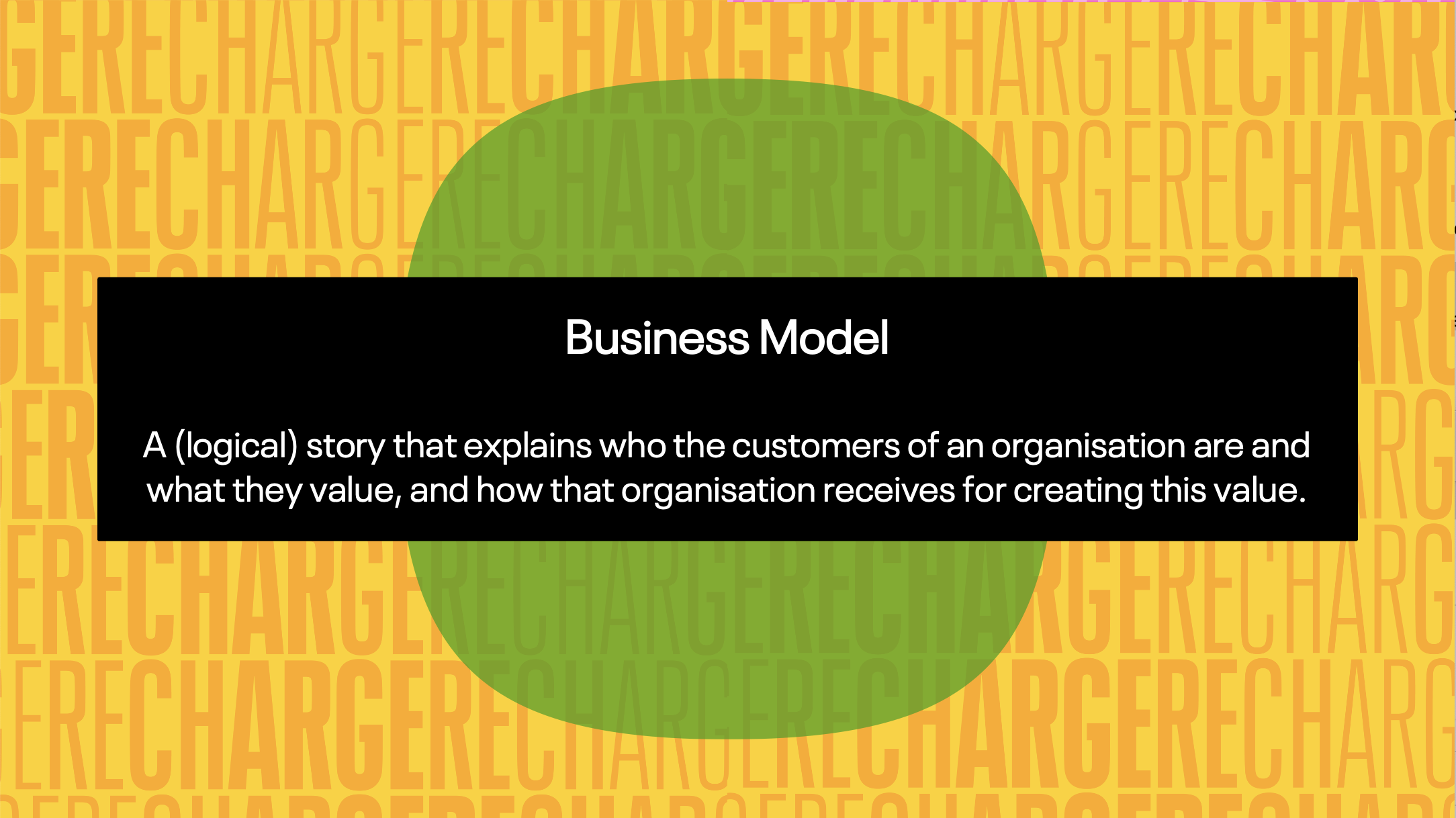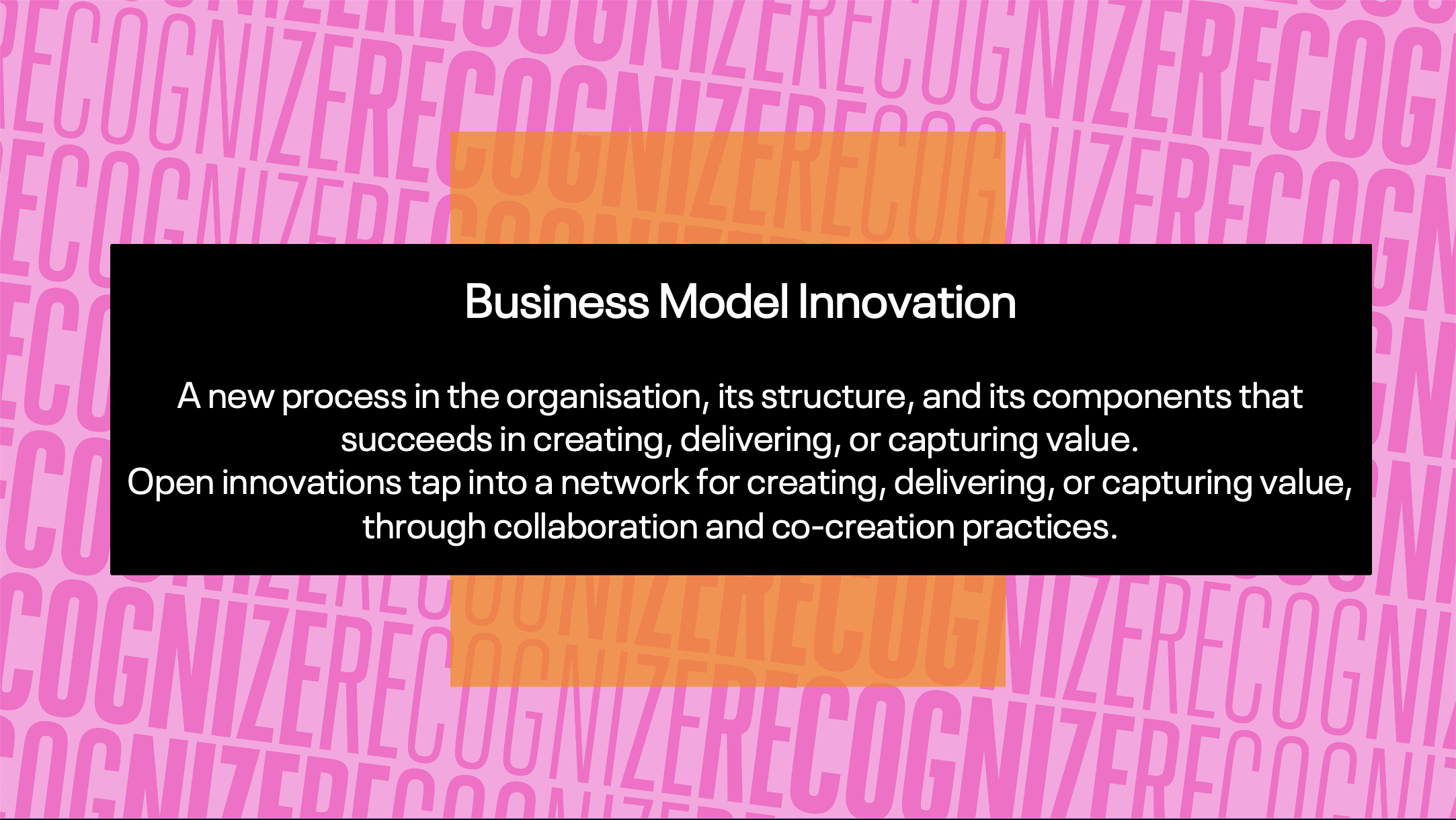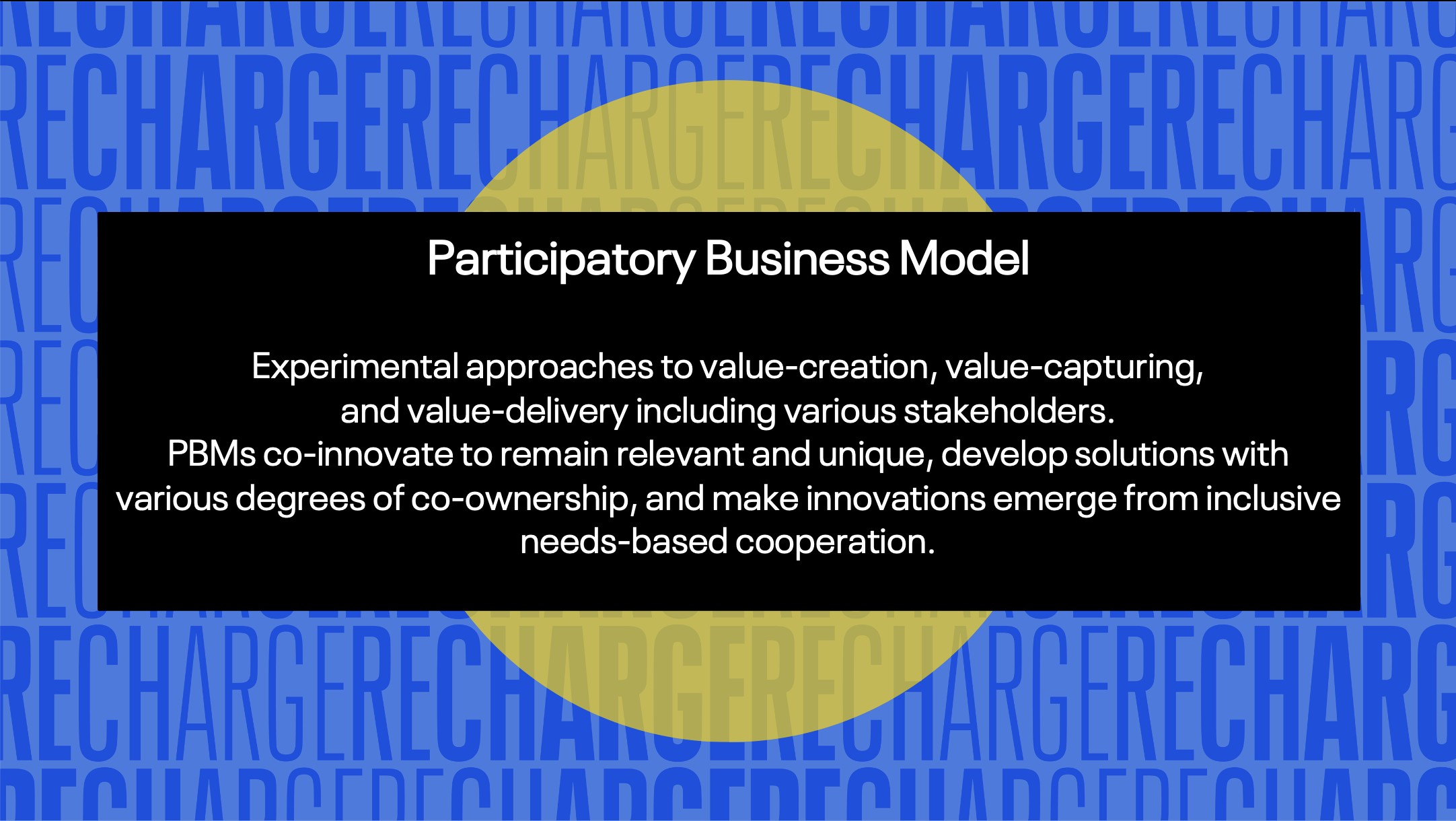RECHARGE World in Words: Business Model
The concept of ‘business model’ has more haters than lovers, especially in the cultural sector (we analysed some of the reasons here). Still, looking at how it has been framed by scholars, it may resonate with many institutions and people. Within RECHARGE, we aim at a clearer and fairer use of the terms, and this is why we want to define it for CHIs, in all its nuances.
In general, a business model is defined as a (logical) story that explains who the customers of an organisation are and what they value, and likewise how that organisation expects to receive returns for creating this value. In short, we can say a business model is ‘the core logic by which a firm creates, delivers, and captures value.’ Creating value relates to the reason why an organisation exists. Delivering value refers to how an organization manages to bring that value to its audiences. And capturing value is about how an organization casts that process into results. Results can be conceived of as three R’s: Revenues (yes - money), Reach (the spread of a message to audiences), and Reputation (the good name of the organisation).

The functions of a business model are diverse and change according to the mission and objectives of the organisation and its audience. It can articulate the value proposition of an organization, define the structure of the value chain, identify audiences and the channels through which these audiences will be reached, and outline the cost structure and revenue mechanisms.
Is the organisation still creating value for its customers with its current products? Does the organization still reach its customers, or should new channels be considered? Should the organization overthink moving from selling products to offering services? Answering these questions can lead to innovation in the development of a business model. Innovation happens either at organisation level or can encompass the entire sector when the current model no longer succeeds in creating, delivering, or capturing value.

Innovation processes that are open to new partners - and, interestingly, actively involve users - connected in a value network, both internal and external to an organization, are referred to as open innovation and are part of a growing trend of collaboration and co-creation practices in business model making.

One way of innovating is reflecting on participation, and how to include participatory practice in the ideation (the 'making') and development of business models - so, make them integral to the production of value. Participatory business models are experimental approaches to value-creation, value-capturing, and value-delivery that include a broad spectrum of stakeholders. They reflect the process that make businesses, organisations, and institutions’ operations desirable, feasible, and financially viable by engaging their networks. Participatory business models devise sustainable solutions and present three main characteristics:
- Co-innovate to remain relevant and unique
- Develop solutions with various degrees of co-ownership;
- Make innovations emerge from inclusive needs-based cooperation.
These characteristics are at the basis of the work of our Living Labs, which are developing business models with the potential to be applied in other contexts, by other organisations, and also capable of inspiring new forms of collaboration that can lead to new and fresher ways to reinvigorate the sector.
---------------------------------------------------------------------------------------------------------------------------------------------------
References
Buur, J., Ankenbrand, B., & Mitchell, R. (2013). Participatory business modelling
Chesbrough, H. (2007). Embracing Open Business Models
Gudiksen, S., Poulsen, S. B., & Buur, J. (2014). Making business models.
Magretta, J. (2002). Why business models matter. Harvard Business Review, 80(5), 86–92)
Osterwalder, A., & Pigneur, Y. (2010). Business Model Generation: A Handbook for Visionaries, Game Changers, and Challengers
Zott, C., Amit, R., & Massa, L. (2011). The business model: Recent developments and future research

Share